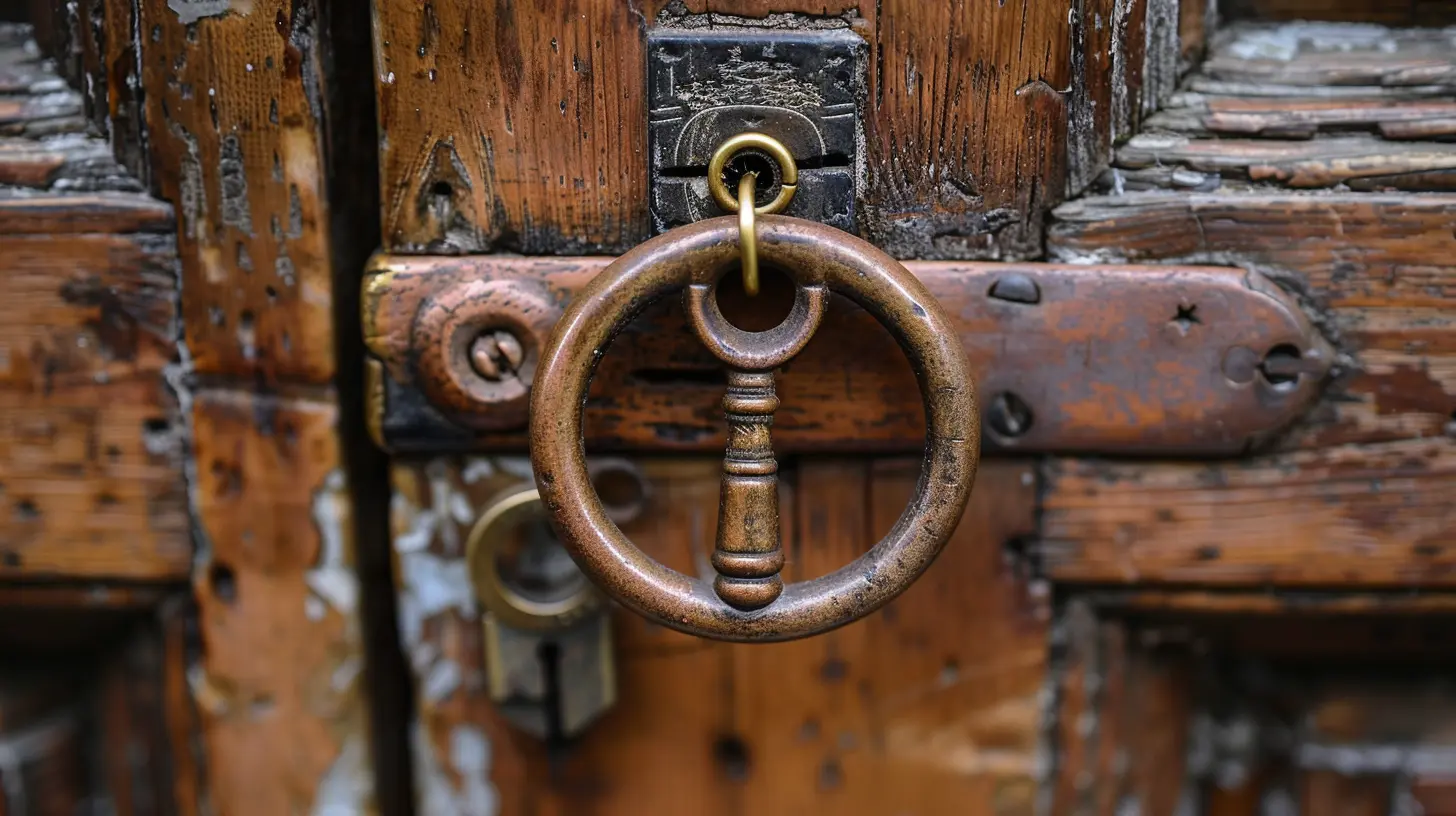The Role of Executors in Estate Planning: A Comprehensive Guide
31 July 2025
Estate planning can easily sound like something only the ultra-wealthy need to worry about. But truthfully? It's something every adult should think about. Whether you own a house, have children, or even just a savings account—it's important to have a plan for what happens when you're no longer around.
At the heart of that plan? The executor.
Now, if you're scratching your head wondering what on earth an executor even does, don't worry—you’re not alone. This guide will walk you through everything you need to know about the role of executors in estate planning. We'll keep it simple, straightforward, and yes—human. Let’s get into it.
What Exactly Is an Executor?
Think of an executor as the project manager of your estate after you pass away. Their job is to make sure your final wishes are honored, your bills are paid, your assets are distributed, and everything is buttoned up just the way you planned.In legal terms, an executor is the person you appoint in your will to carry out the terms of your estate. But put simply? They're the ones who handle the "business" of your death so your loved ones can focus on grieving and healing—not logistics and paperwork.
Why the Executor Role Is a Big Deal
Choosing an executor isn't just about picking the person closest to you. It's about trusting someone to carry out your wishes during an emotional time, under the weight of legal and financial responsibilities.Imagine this scenario: Your assets are like a jigsaw puzzle. It’s your will that holds the final picture, and the executor is the one who assembles the pieces. If the wrong person is chosen—or if there's no one named at all—things can get real messy, real fast.
Here’s why the role is so crucial:
- They Make Sure Your Will Is Followed: Nothing gets divvied up without their say.
- They Protect Your Assets: It’s on them to manage your money and property responsibly until the final distribution.
- They Handle Legal Filings: Courts, taxes, debts—they manage the paperwork and deadlines.
- They Keep the Family Peace: Ideally, the executor ensures your loved ones aren’t battling over who gets what.
What Are the Day-to-Day Responsibilities of an Executor?
Let’s break down what an executor typically does, step-by-step. While every estate is a little different, here’s the usual process:1. Locating the Will and Filing It
Once the person passes, the first job for the executor is to find the will and file it with the probate court. Without that step, the estate can't officially be settled.2. Notifying Interested Parties
Next, the executor lets beneficiaries, heirs, and creditors know that the estate is being processed. This step keeps everything transparent and prevents surprises.3. Inventorying Assets
Here comes the treasure hunt part! The executor must track down all the deceased’s assets—bank accounts, property, stocks, personal items, even digital assets. Think of it as creating a comprehensive catalog of what’s owned.4. Paying Debts and Taxes
Before anything gets handed out to the heirs, the executor takes care of any outstanding debts, medical bills, and taxes. Prioritizing this step protects the estate from legal headaches down the road.5. Distributing the Assets
Finally, the good part: distribution. Once bills are paid and legal stuff is out of the way, the executor gives out the assets according to the will.6. Wrapping Up the Estate
Think of this like closing a bank account—final reports get filed with the court, remaining bank accounts are closed, and the executor’s job is complete.
Who Should You Pick as Your Executor?
Now comes the million-dollar question: Who should you choose?Hint: it’s not always the oldest child or the person who lives closest. The best executors are:
- Trustworthy – They should honor your wishes, even under pressure.
- Organized – There’s a lot of paperwork, timelines, and details involved.
- Communicative – Family members will have questions, and your executor should be able to answer them clearly.
- Financially Responsible – They're handling money and assets, after all.
- Willing – It’s a big job. Make sure they’re actually up for it.
Some folks choose a family member or friend, others go with a professional like an attorney or bank. There’s no one-size-fits-all answer—just go with someone who will do right by you and your loved ones.
Can an Executor Say "No Thanks"?
Totally. Being an executor is voluntary—you can decline the role if you're asked and don’t feel comfortable. And if no executor is named, or the chosen one declines, the court will appoint someone. (Usually a close relative.)This is why it’s a good idea to name an alternate executor in your will. Think of it as a backup quarterback in case the starter is injured.
What Happens If You Don’t Name an Executor?
Let’s be clear—if you die without a will (called dying "intestate"), you’re basically handing the keys of your estate over to the state. And if there’s no executor named, the court steps in and appoints one on your behalf.Sounds okay in theory, right?
Wrong.
This process is longer, more expensive, and your assets might not be distributed the way you’d want. Plus, it can stress out your family big-time. Naming an executor (and a backup!) in advance keeps control in your court.
Should You Pay Your Executor?
Here’s where it can get a little awkward—yes, executors are often compensated.Sometimes it’s a flat fee, other times it’s a percentage of the estate. The exact amount depends on state laws and the size of the estate, but it’s a fair trade for the work involved. Just imagine having to juggle legal documents, settle debts, and field phone calls while also dealing with your own grief. It’s a lot.
If you name a close friend or family member as your executor, they might decline the payment—but it’s totally reasonable (and expected) to offer it.
Common Mistakes to Avoid When Naming an Executor
We’ve seen all kinds of estate drama stem from poor executor decisions. Here’s how to avoid common pitfalls:- 🛑 Don’t Name Someone Without Asking: Always get their permission beforehand.
- ⚖️ Don’t Assume the Court Will Sort It Out: Without a choice in writing, your estate enters the land of legal limbo.
- 💥 Don’t Choose Based on Emotion Alone: Just because someone loves you doesn’t mean they’re organized enough for the job.
- 📉 Don’t Forget to Update Your Executor: Life changes. Make sure your choice still makes sense every few years.
How to Prepare Your Executor
So, you’ve picked the perfect person. Great! Now what?Equip them.
Here’s what that looks like:
- ✅ Keep Your Will Accessible: Let them know where it is and how to get to it.
- ✅ Share the Details: Make a list of assets, passwords, accounts, and contacts.
- ✅ Talk It Through: Have an honest conversation about your wishes, so they’re not blindsided.
Think of it like handing off the playbook before the big game. The more prepared they are, the smoother everything will go.
Final Thoughts: Executors Hold the Baton When the Curtain Falls
At the end of the day, your executor is the person who makes sure your final act is just as thoughtful and composed as the rest of your life. They protect your legacy, your loved ones, and your intentions.Estate planning isn’t about being morbid—it’s about being responsible. And the executor? That’s the key player who makes sure your plan actually happens the way you imagined it.
So take your time, choose wisely, and make sure you’re giving this role the attention it truly deserves. Because when life takes its final bow, someone needs to be there to close the curtain with grace.
Frequently Asked Questions (FAQs)
Can I have more than one executor?
Yes, you can name co-executors, though it can complicate decision-making. You’ll need to choose people who can work well together.What if I change my mind about who I want as executor?
No worries. You can update your will at any time to reflect your new choice. Just make sure it’s properly notarized and stored safely.Does the executor need to live in the same state?
Not necessarily, but some states have restrictions or extra paperwork for out-of-state executors. It's usually simpler if they’re local.What’s the difference between an executor and a trustee?
An executor handles your estate after death, while a trustee manages a trust (which can be active while you’re still alive). Different roles, different responsibilities.all images in this post were generated using AI tools
Category:
Estate PlanningAuthor:

Audrey Bellamy
Discussion
rate this article
1 comments
Brianna Bowman
Executors play a crucial role in estate planning, serving as the bridge between the deceased's wishes and their execution. Understanding their responsibilities not only ensures a smoother probate process but also helps mitigate disputes among beneficiaries, ultimately preserving family harmony and financial integrity.
August 23, 2025 at 2:39 AM

Audrey Bellamy
Thank you for highlighting the importance of executors in ensuring that estate plans are executed smoothly and fairly. Your insights underscore their vital role in maintaining family harmony during what can be a challenging time.


